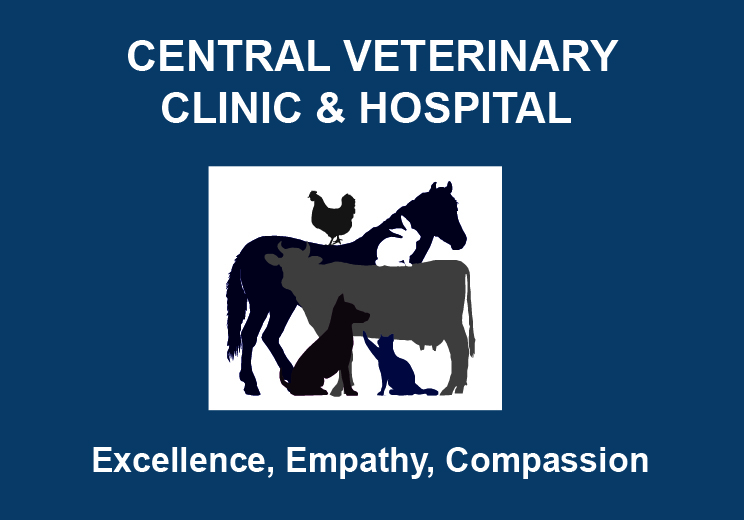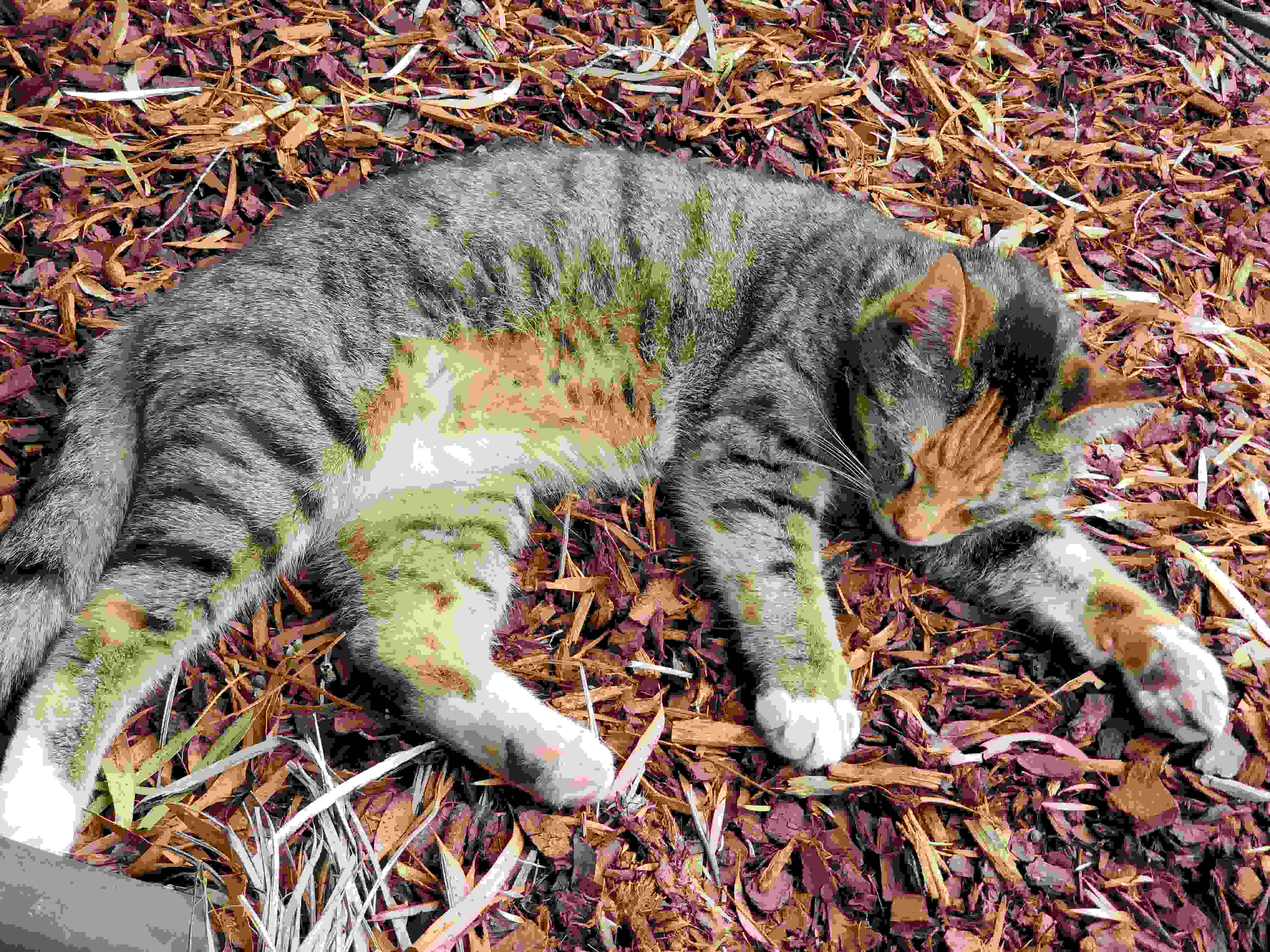At Central Veterinary Clinic & Hospital, like every clinic, we offer discount desexing as a service to the community. Yes, desexing is required by local councils, to reduce the unwanted stray cat and dog population. However, it is also beneficial for the health of the animals.
Benefits of desexing
The benefits of desexing, other than to reduce unwanted babies (which is huge in itself), include:
- Male cats: prevents roaming, cat fight wounds, FIV infection, and being hit by vehicles
- Female cats: prevents FIV infection, uterine infections, on-heat behaviour, and juvenile motherhood
- Male dogs: prevents prostate diseases, peri-anal tumours, stud tail, and may reduce sex-linked marking behaviour and mounting
- Female dogs: prevents breast cancer (virtually 100% of breast cancer occurs in non-desexed or late desexed dogs), uterine infection, on-heat behaviour, and emergency births
When to desex?
Cats can become fertile from 4 months of age. Late desexing is a cause of unwanted early litters in a kitten still growing herself. We advise desexing cats from 4 months of age.
For small dogs, less than 25 kg, we advise desexing at 6 months of age.
For larger breed dogs, those with an expected weight of 25 kg or higher, the evidence suggests waiting until 12-18 months of age. It’s a compromise. Desexing females before their first heat (which occurs between 6 and 12 months of age) reduces the chance of getting breast cancer in life to virtually zero. However, larger breed dogs desexed before they are fully mature are more at risk of bladder outlet incontinence as well as cruciate ligament disease in the knee. Dogs desexed after their first heat but before their second heat still have a very significant reduction in their lifetime risk of getting breast cancer. And delaying desexing until fully mature reduces the risk of developing bladder incontinence and cruciate disease.
Desexing is routine but still to be treated seriously
Although routine, desexing is still a major surgery. Male desexing involves removing the testicles. Female desexing involves opening the abdomen and removing the ovaries and uterus. The most serious part – in all cases, the surgery is done under a general anaesthetic. To put it in crude but enlightening terms, a general anaesthetic is deliberately making an animal unconscious so they cannot think, feel pain, or move during surgery but not to the point that the heart and lungs stop, and the animal dies. With every anaesthetic, we are taking an animal closer to unconsciousness and death. At the extreme, with euthanasia, we are overdosing an animal with general anesthetic. Thus, every anaesthetic is to be taken with utmost seriousness, no matter how short or if it is for a routine procedure.
Our serious approach
At Central Veterinary Clinic & Hospital, we take every precaution to ensure a good outcome, both with the anaesthesia and the surgery.
Because we want a good outcome, our desexing prices include everything.*** We do not want to cut corners and put our patients at risk. All our desexings include:
- Admission
- Pre-anaesthetic examination
- We offer a comprehensive pre-anaesthetic blood testing using the latest in-house Idexx blood machines. This is to determine if the organs are functioning well and to pick up any underlying kidney, liver, or pancreatic disease etc. that would warrant delaying surgery or changing our anesthetic approach.(**Note: many clinics offer a rudimentary pre-anaesthetic blood test, checking very limited parameters. We prefer a more comprehensive test, which includes such things as calcium and GGT, which are further sensitive markers of wellness and disease.)(***Note: The pre-anaesthetic blood test to provide that extra peace of mind is an additional cost.) Read the following for more information: anaesthesia-and-your-pet.pdf (idexx.com.au) https://www.idexx.com.au/files/preanesthetic-blood-testing-paper.pdf
- Tailored pre-medication to relax, provide pain relief, and reduce the amount of anaesthesia required.
- All animals are given intravenous fluid therapy whilst under anesthetic. This maintains blood pressure and perfusion through the kidneys, liver, and other vital organs whilst anaesthetised. It also ensures a smoother recovery.
- A dedicated nurse monitors the anaesthesia from induction to recovery.
- We use the latest monitoring equipment, including an apalert, pulse oximeter, capnograph, blood pressure monitor, and temperature probe.
- An animal’s temperature drops during anaesthesia. We constantly monitor temperature and use warming mats and a fluid warmer to maintain your animal’s temperature as close to normal as possible. Our operating theatre is warm and we will even swelter if it means your animal stays warm.
- We prepare animals for surgery in the preparation area before transferring to a separate sterile operating theatre for surgery to ensure the surgical site stays as sterile as possible.
- Our vets are very experienced, performing skillfully and efficiently to minimise the time under anaesthesia and minimise surgical trauma. Most animals will receive internal sutures (intradermal), which are under the skin, cause less irritation, and do not need to be removed.
- All animals receive pain relief in hospital and then go home with pain relief for the next 3-5 days.
- All animals go home with an elizabethan collar, to avoid them licking and infecting their wounds.
- We send all animals home with a comprehensive information sheet and a desexing certificate.
- We offer complimentary post-op checks at 3-5 days and then again at 10-14 days after the surgery.
Desexing costs
Although the real cost of desexing, in terms of time, resources, and expertise would cost a thousand dollars or more (for a spey), every veterinary clinic offers desexing at a fraction of that real cost. We do this for the community – to make such an important surgery affordable and available to everyone. And, importantly to avoid the alternative consequence of having hundreds of unwanted animals at the pound.
Exact prices depend on the weight of the animal. Please call for a quote and to book: 03 9996 9574
Although heavily discounted, we do understand that the cost can still be daunting. We do accept VetPay, AfterPay, ZipPay, and GapOnly. And yes, we do accept council desexing vouchers.
***If you mention this article, we will offer you a further 10% off our standard desexing prices.***

